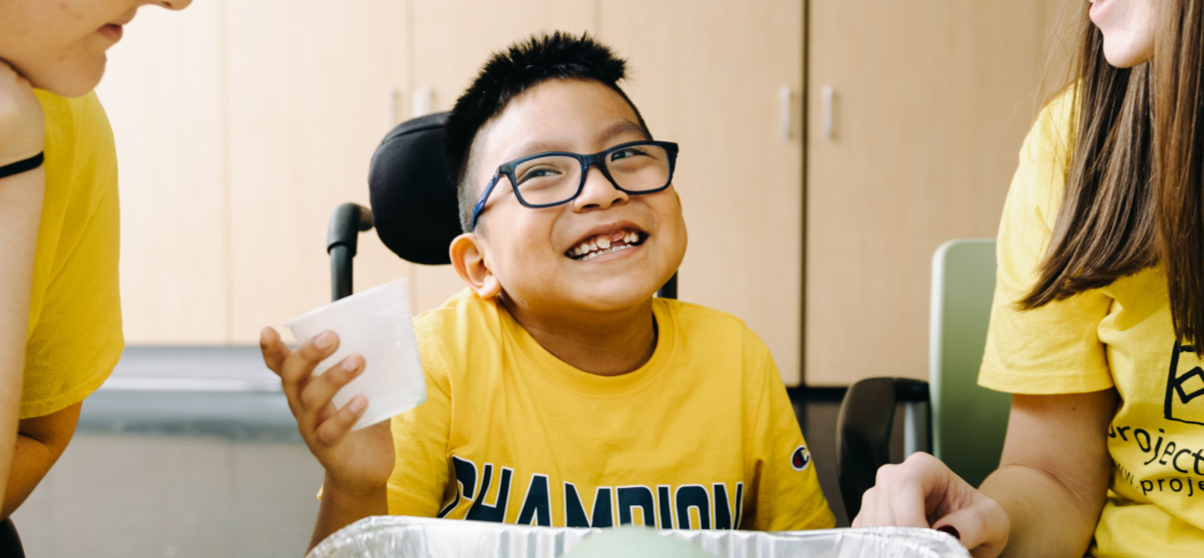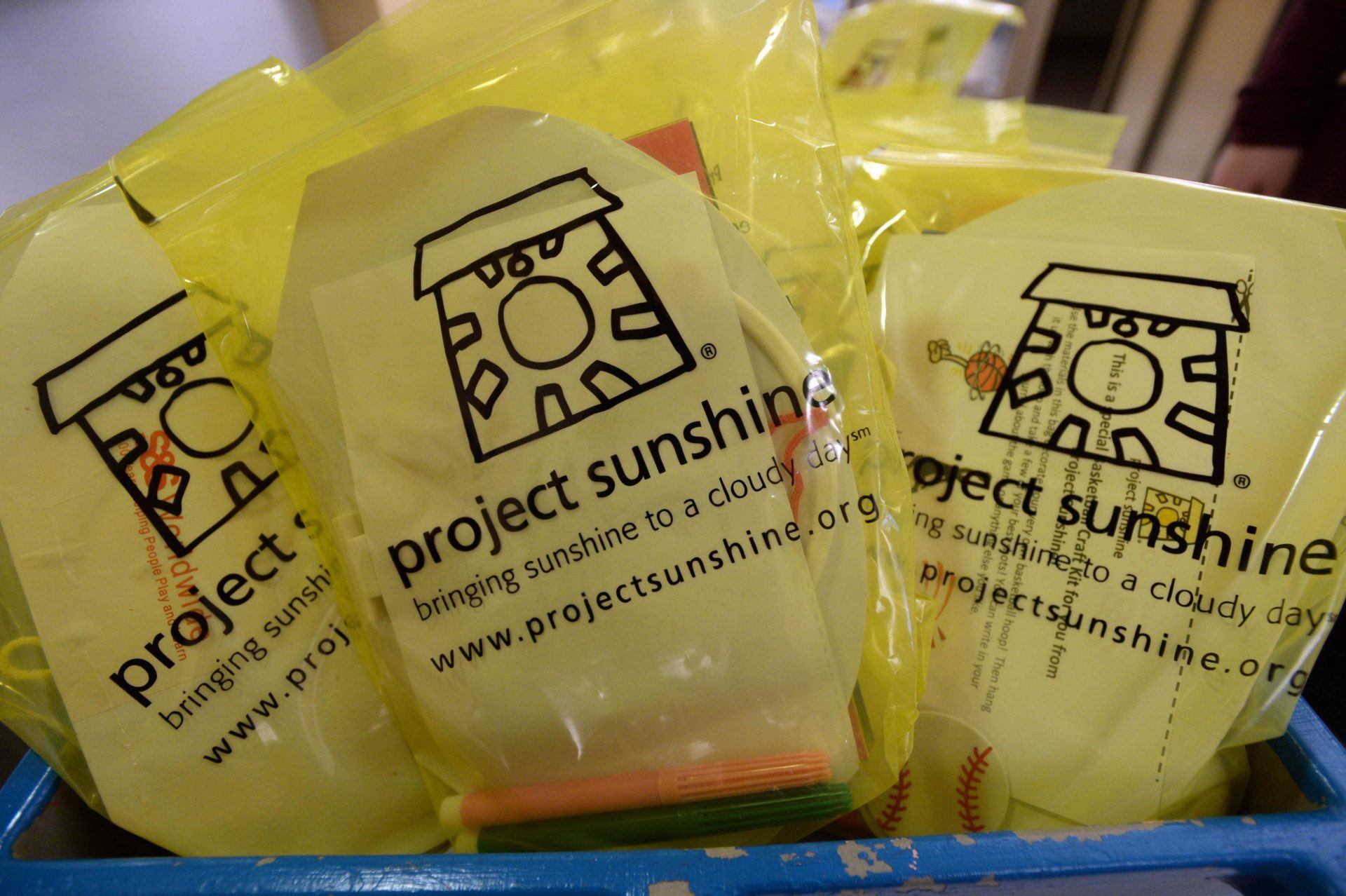Lisa Roberts, founder of YoYoYoga, brings yoga to children who participate in TelePlay, Project Sunshine’s program that connects children to games and activities with live interaction with other children and trained volunteers. The program is free and HIPAA compliant. To learn more about TelePlay, visit projectsunshine.org/teleplay
Movement, mindfulness, meditation: these are the words Lisa Roberts uses with her patients and their families, emphasizing that her work with them is built around the practical application of techniques to help children manage their stress and their pain and regain some sense of control over their lives, control that has been ceded to a disease or a medical facility, or both.
After more than 10 years developing her practice and techniques, Lisa has therapeutic and themed approaches for just about everything. In the blink of an eye, she can summon Spiderman or the image of a firefly to help children learn breath control, and whether a kid is shooting wrist-webs at an IV pole or visualizing the steady rhythms of a firefly’s glow, he’s reclaiming some agency over his environment. Lisa’s title is Yoga Teacher, but her work is fundamentally about empowerment, about helping children feel in control. The IV pole is now a part of a game, not just a medical apparatus; picturing a firefly helps a child steady her breath while also evoking images of nature and greenery not often found in a sterile medical environment.
Lisa is part of the Child Life Services team at St. Louis Children’s Hospital, a leading institution in pediatric care since 1879. SLCH has served pediatric patients from all 50 states and more than 80 countries, and boasts a robust set of Child Life Services programs, from art therapy to pet therapy to state-certified teachers who help hospitalized kids stay involved in academics.
Child Life Services is an evolving field, as traditional Western medicine continues to discover and adopt a more holistic approach to pediatric care. Lisa is a tireless advocate for therapies that can reduce hospitals visits, mitigate the need for certain medicines, and generally give pediatric patients and their families something they can do to influence their medical experience. Too often, she sees family members and caregivers sitting helpless at a bedside, filled with anxiety or fear, unable to do much to help their child. In a worst-case scenario, caregivers may have to hold or help restrain their children so that certain procedures can be performed.
One such procedure is accessing a child’s port. A port is a medical device surgically implanted in a child’s chest and used in lieu of repeated IV sticks, whether to draw blood or administer medicine. Pediatric oncology patients, in particular, have their ports accessed regularly, and the experience can be traumatic for children and family members alike. Lisa remembers the story of four-year-old Graham: about to have his port accessed, he began to panic, but then his mother reminded him to try Miss Lisa’s breathing technique, and the little guy was able to calm himself to handle the procedure without being restrained. “Imagine how that mom felt having a tool to give her kid to help him,” Lisa says, “she was able to take some control, to do something to make his experience better.”
Another patient, Lisa smiles, actually asked his treatment team to hold on for a minute—they were about to administer a light sedative, and he wanted to try his breathing exercises, first. They held back, and after a few minutes he was able to proceed with his treatment without requiring pain medicine. “When someone you care for and love is sick, you can feel so lost—all you can do is show up and go to the appointments with them,” Lisa says. Her work changes that dynamic, in a powerful, immediate way.
In 2011, Lisa founded the YoYoYoga School and began offering professional development trainings, including for Child Life staff members around the country. Well aware that not every medical facility would have the capacity to bring in specialists like her, she wanted to share her techniques as broadly as she could, to “help hospitalized children of all abilities to manage stress, anxiety, pain, and improve overall wellness.” Whether it’s a clinic visit, a hospital stay, or chronic illness, these therapies can make a marked difference for a pediatric patient’s experience—and recovery.
Despite increasing research that validates a more holistic approach to health, adoption can still be slow, and there may be financial or bureaucratic barriers to overcome. That’s why Lisa was thrilled to be approached by Project Sunshine, recognizing immediately that their reach and non-profit status could bring her work to a much broader audience, and at scale. Since the pandemic, she’s been scheduling at least two Teleplay sessions a week: volunteering her time to work with kids around the country to share the fun, empowering, techniques she’s developed to help them feel more in control, more able to influence their own medical care.
Lisa describes her 1:1 therapeutic work as incorporating what the medical staff wants her to accomplish with what a kid is interested in doing, so she always leads with questions: “What is your body asking for today? Do you want to get up and move, should we do some breathing?” However the child answers, Lisa has a way to help her learn to self-soothe, to manage her anxiety, and to learn the general coping skills any human needs when navigating medical procedures.
“Psychosocial support is so important,” Lisa says, “and the pandemic has underscored the impact of mental health on physical health and recovery.” Working with Project Sunshine, Lisa has spread her techniques and treatments to more Child Life team members, families, and patients than she could ever reach on her own. Her work is a natural fit for Project Sunshine’s mission: “I make it fun,” she says of her therapies, “the patients are playing games, they don’t even know they’re doing something that’s good for them.”
Leaving families with handouts detailing how to continue this play at home, Lisa is a one-woman force for change in the medical field. Project Sunshine is glad to be able to support and grow her impact, yet another example of the innovative ways CLS professionals are making healthcare personal, and helping patients and families feel an important part of their own medical experience.




-1.png)